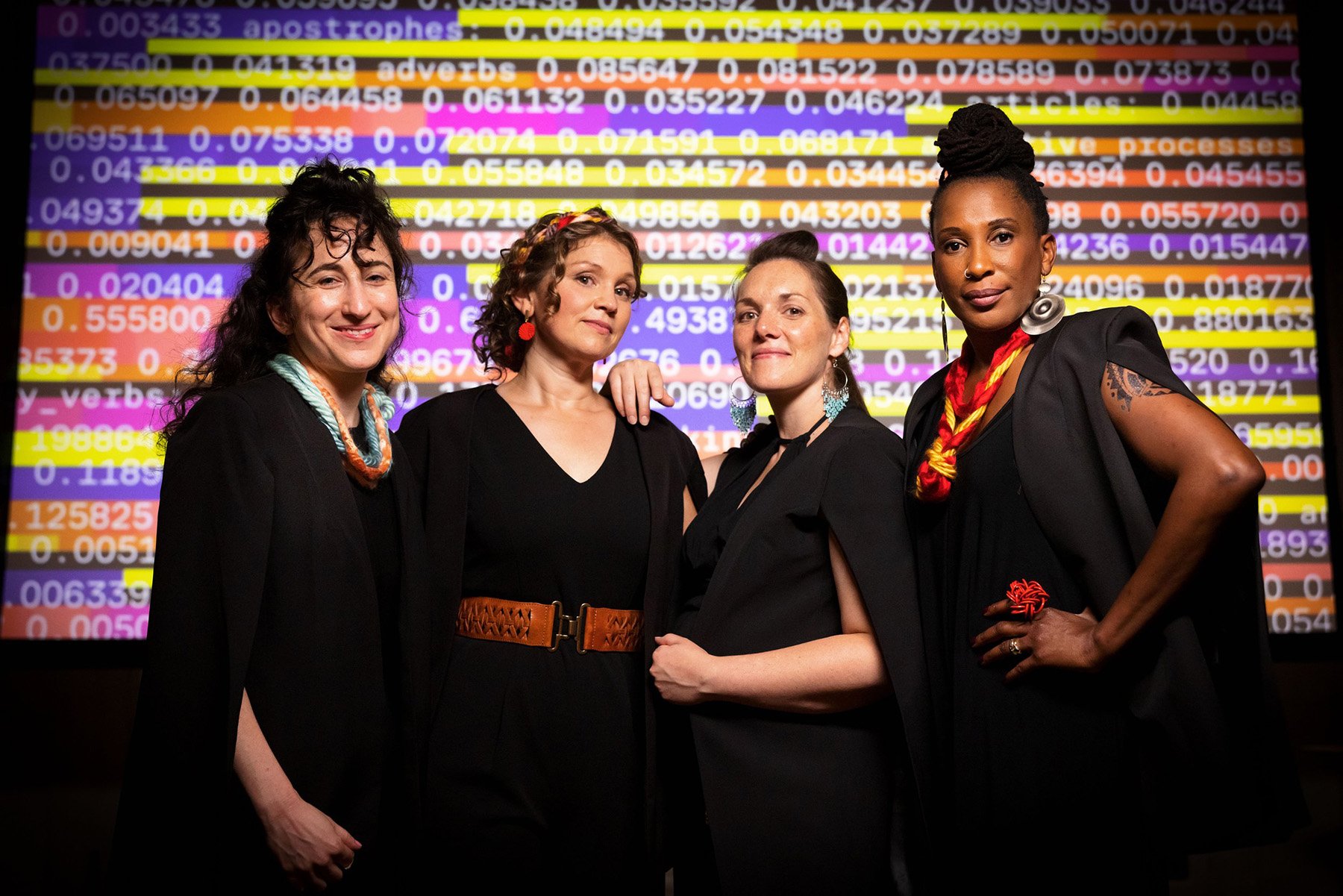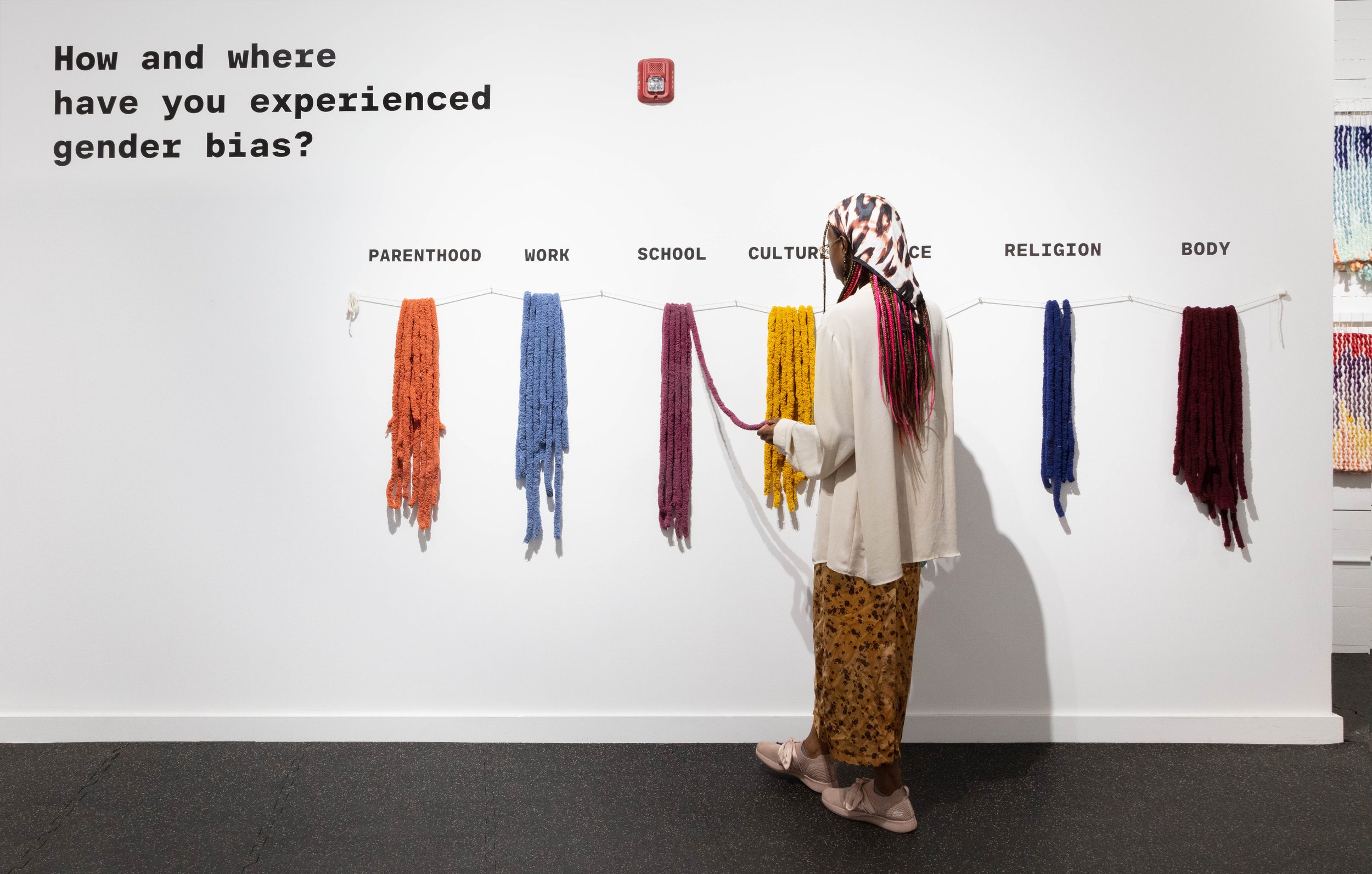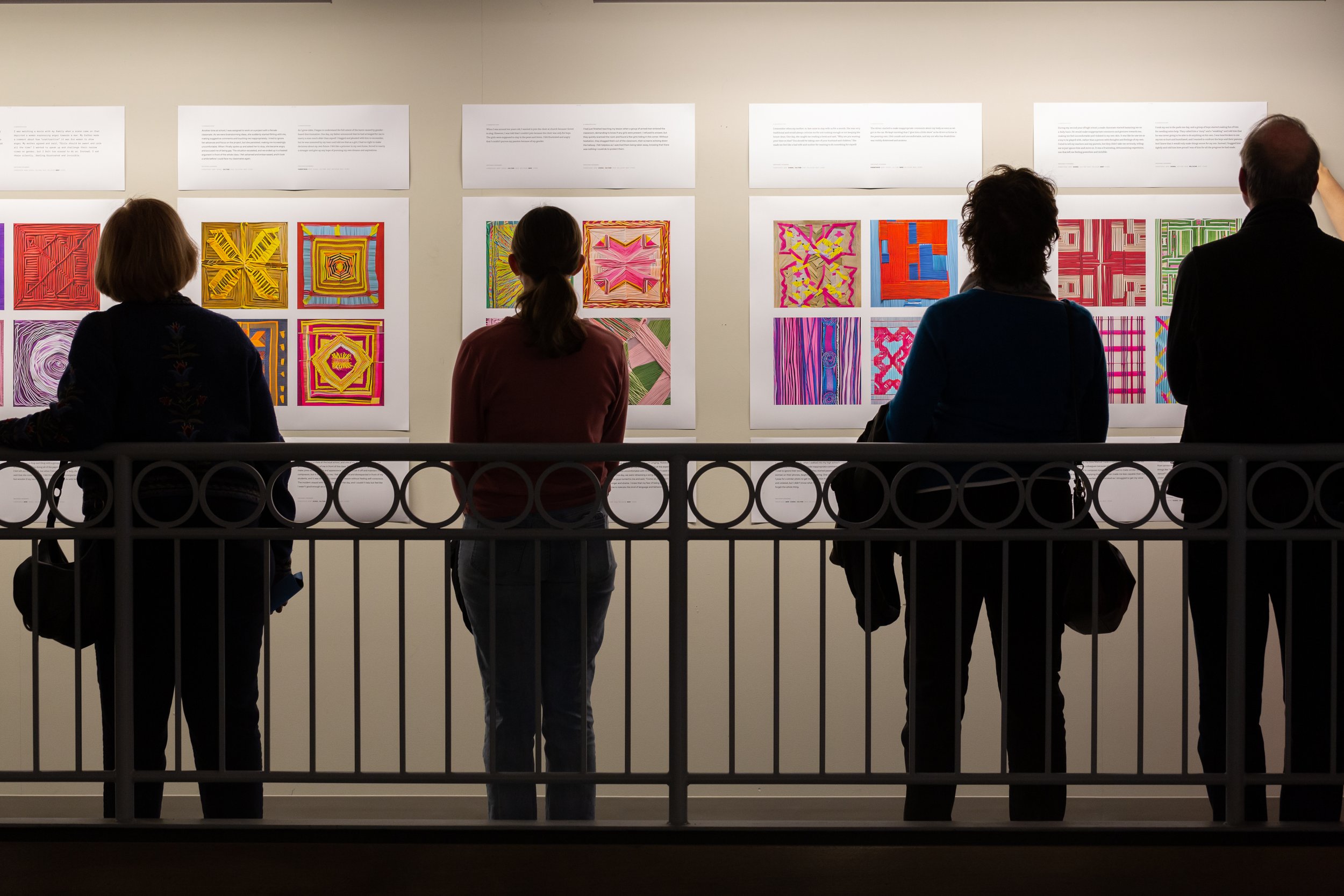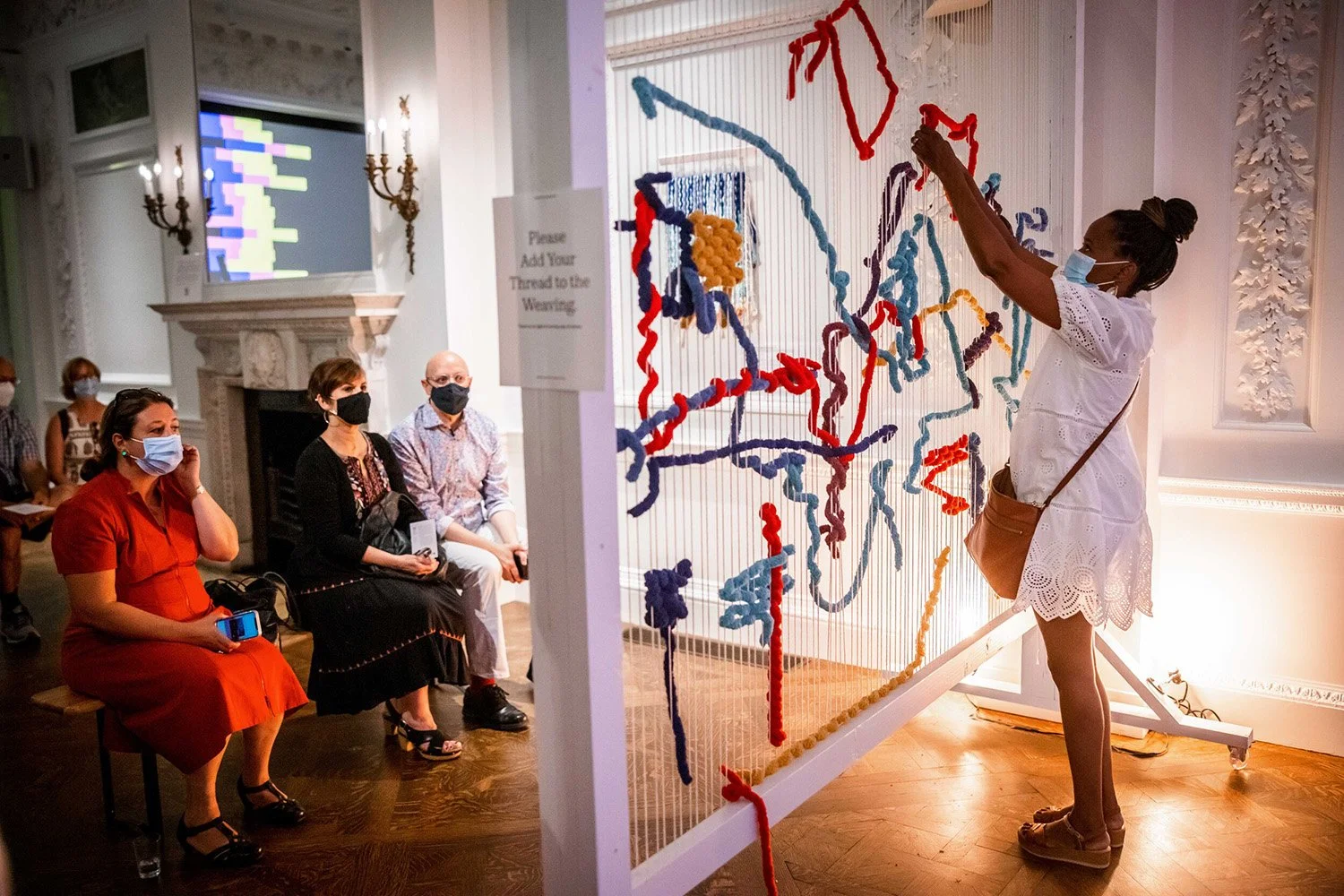
Threads of Assumption
Threads of Assumption is an art exhibition by Maria Finkelmeier, Sofie Hodara, U-Meleni Mhlaba-Adebo, and Martha Rettig.
The project surfaces interwoven experiences shaped by gender bias. Through the interpretation and interrogation of both human stories and artificial intelligence (AI), we see, hear, and feel the effects of gender harm through the experiences of many.
The artists collect personal stories about gender-based harm and look for patterns and narratives within the data. These stories and data are transformed into digital visualizations, musical compositions, spoken word poetry, and weavings.
Exhibition and performance visitors are also invited to participate by weaving their perspective into a large, room-scale loom. They choose a color of yarn based on how and where they have experience bias, through parenthood, work, school, culture, race, religion, body and other.
Premiered June 2021
Boston, MA
The work premiered at the Goethe Institute, Boston’s Studio 170 and was made possible (in part) by a Live Arts Boston grant from The Boston Foundation. For this exhibition, data was collected from 22 sourced conversations. Each conversation was analyzed for emotional content and thematic language and turned into datasets by AI. These datasets are represented in the musical score, weavings on the wall, and in the digital visualizations. Words and phrases from the stories have been combined in the spoken-word poem.
For the artists, the concept of weaving this rigid data and the human experience became essential at every turn, similar to the way tactile weavings are made, with a tense, rigid warp and dynamic, colorful weft. The exhibition is centered around a room-scale loom. Visitors were prompted to choose and weave a thread into the loom and reflect upon their own stories and identities. Visitors are also invited to anonymously share their story of gender bias, for use in future exhibitions
November 2022 - April 2023
East Hartford Public Library, East Hartford Connecticut
Sponsored by The Town of East Hartford
This musical score translates story, choice, and demographic information to musical notation, electronic beats, and a visual presentation of sound. It is a representation of the lived experiences of gender bias collected from 37 workshop participants at the East Hartford Public Library in November 2022 and February 2023. Each participant in the workshop was invited to choose a category to answer the question: “How and where have you experienced gender bias?” Participants choose from options: parenthood, work, school, culture, race, religion, body and other. They were encouraged to choose as many categories as needed to align with their experiences related to gender bias.
The theme of the entire composition, as well as the melody for each category vignette is derived from the number of times each category was chosen. For example, the theme is as follows: 13, 13, 22, 20, 10, 8, 11, 3. Each number was then correlated with musical pitch, using the Western notation system. Starting with C4, musical pitch and numbers were connected, and increased chromatically. (Example: C4 = 1, C#4 = 2, D4 = 3, D#4 = 4, E4 = 5, F4 = 6, etc… ). In musical pitch, the theme that represents all the stories collected is: C5, C5, A6, G6, A4, G4, Bb4, D4. To make this into a musical phrase, the performer is encouraged to infuse various rhythmic, dynamic, and articulation choices.
To accompany the theme and each category vignette, a rhythmic pattern was derived from the visualization of the data. The data was arranged in a chart, in which each column represents a category and row, a participant. The boxes created are “checked” if the category is chosen, and left empty if not. Then, this visualization is translated to on/off information to create rhythm in the music production software, Ableton Live.

















